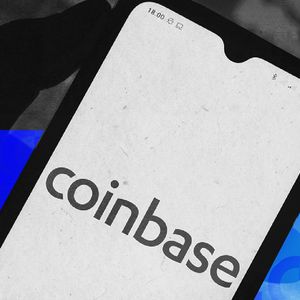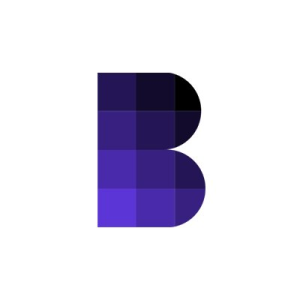BitcoinWorld HSBC Tokenized Deposit Service Accelerates 24/7 Corporate Payments in Hong Kong In a significant move signaling the growing convergence of traditional finance and digital assets, global banking giant HSBC has officially launched a groundbreaking service for its corporate clients in Hong Kong. This isn’t just another incremental update; it’s the debut of their blockchain-based HSBC tokenized deposit service, designed to fundamentally transform how businesses handle transactions. This launch represents a tangible step forward in the adoption of distributed ledger technology (DLT) within mainstream banking operations, specifically targeting the efficiency and speed of corporate treasury functions. For businesses operating in Hong Kong and dealing with HKD and USD, this service promises a new era of financial flexibility. Understanding Tokenized Deposits: What Are They? Before diving into the specifics of HSBC’s offering, let’s clarify the concept of Tokenized deposits . Simply put, a tokenized deposit is a digital representation of a commercial bank deposit liability on a distributed ledger or blockchain. Unlike stablecoins, which are often issued by non-banks or backed by reserves held elsewhere, tokenized deposits are direct liabilities of the issuing bank, just like the money you hold in your regular bank account. Think of it as your traditional bank balance, but existing and transferable on a blockchain network. This allows for programmatic settlement, instant transfers, and integration with other digital asset activities, while retaining the regulatory oversight and stability associated with commercial bank money. They are distinct from central bank digital currencies (CBDCs) and other forms of cryptocurrencies. Key characteristics of Tokenized deposits often include: Issued by regulated commercial banks. Represent a direct claim on the bank, equivalent to traditional deposits. Operate on a blockchain or DLT platform. Enable faster, potentially 24/7, transfers and settlements. Can be integrated with smart contracts and other digital workflows. HSBC’s Specific Offering: The Hong Kong Edge HSBC’s new service focuses initially on corporate clients within Hong Kong. According to information released by the bank, this service facilitates real-time transfers of tokenized HKD and USD between wallets held by corporate customers directly at HSBC. This is a crucial detail – the transfers occur within the bank’s own ecosystem, which simplifies some of the regulatory and technical complexities associated with interbank transfers. The primary benefit highlighted is the ability to conduct these transfers 24 hours a day, 7 days a week. Traditional corporate payments, especially international ones or those involving different banks, are often restricted by banking hours and settlement cycles. This 24/7 availability addresses a major pain point for global businesses operating across different time zones. The service leverages blockchain technology to ensure these transfers are not only real-time but also secure and efficient. By keeping the transfers within the HSBC network initially, the bank can control the environment, manage risks effectively, and provide a seamless experience for participating clients. How Blockchain Powers These Payments At the heart of this innovation are Blockchain payments . While the specific blockchain platform HSBC is using for this service hasn’t been publicly detailed for this specific launch (banks often explore private or permissioned ledgers for such applications), the underlying principles remain consistent with how blockchain enhances payment systems. Here’s how blockchain contributes to the efficiency and effectiveness of these Blockchain payments : Immutability: Once a transaction is recorded on the blockchain, it is extremely difficult to alter, providing a high degree of trust and auditability. Transparency (within the network): While not public like Bitcoin, participants on a permissioned network can have visibility into transactions relevant to them, improving reconciliation. Speed and Efficiency: By removing intermediaries and operating on a distributed ledger, transactions can be processed and settled much faster than traditional systems. Reduced Counterparty Risk: Within a closed loop like HSBC’s internal system, the risk is primarily the bank’s own creditworthiness, which is already inherent in traditional deposits. Automation: The tokenized nature allows for potential integration with smart contracts, enabling automated payments triggered by specific conditions. This use of DLT for Blockchain payments within a controlled banking environment demonstrates a practical application of the technology beyond speculative cryptocurrencies, focusing instead on improving existing financial infrastructure. Unlocking Efficiency: Benefits for Real-time Corporate Payments The introduction of this service brings significant advantages for corporate clients, particularly those requiring swift and flexible payment capabilities. The focus on Real-time corporate payments is a game-changer for treasury and finance departments. Let’s look at some key benefits: 24/7 Availability: As mentioned, the ability to transfer funds at any time, day or night, including weekends and holidays, provides unprecedented flexibility for businesses operating globally or needing to manage urgent payments. Improved Liquidity Management: Real-time visibility and control over funds allow treasurers to manage cash flow more effectively, potentially reducing the need to hold excess liquidity in various accounts. Faster Settlement: Transactions settle instantly between wallets on the platform, eliminating the delays associated with batch processing or traditional correspondent banking. Reduced Costs: While the exact fee structure hasn’t been detailed, DLT-based systems typically have lower operational costs compared to legacy infrastructure, potentially leading to reduced transaction fees for clients over time. Streamlined Reconciliation: The transparency and immutability of the ledger can simplify the reconciliation process, reducing manual effort and errors. Enhanced Operational Efficiency: Faster payments and easier reconciliation free up resources within finance departments, allowing them to focus on more strategic tasks. This move towards Real-time corporate payments via tokenized deposits aligns with the broader industry trend towards faster, more efficient, and always-available financial services. HSBC Tokenized Deposit vs. The Alternatives How does HSBC’s tokenized deposit service stack up against other forms of digital money and payment systems? It’s helpful to draw comparisons: Feature HSBC Tokenized Deposit Traditional Bank Transfer Public Network Cryptocurrency (e.g., Bitcoin) Stablecoin (non-bank issued) Central Bank Digital Currency (CBDC) Issuer Commercial Bank (HSBC) Commercial Bank Decentralized Network Private Company/Entity Central Bank Liability Direct Bank Liability Direct Bank Liability No Issuer Liability Issuer Liability (depends on backing) Direct Central Bank Liability Underlying Tech Permissioned DLT/Blockchain Traditional Banking Infrastructure Public Blockchain Various Blockchains/DLTs Various DLTs/Platforms Availability 24/7 (within network) Limited by banking hours/cycles 24/7 24/7 Potentially 24/7 Regulatory Status Regulated (as bank deposit) Regulated Varies significantly Varies significantly State-backed/Regulated Primary Use Case Corporate Payments (within bank) General Payments Speculation, Peer-to-Peer (varies) Payments, DeFi Retail/Wholesale Payments (varies) This table highlights that HSBC’s offering is distinct. It leverages DLT like crypto and stablecoins for speed but retains the safety and regulatory framework of traditional bank deposits. It’s a hybrid approach, designed to bring the benefits of digital assets to the established financial system. Challenges and the Road Ahead While the launch of the HSBC tokenized deposit service is a positive step, it’s not without its challenges and limitations. Currently, the service appears limited to transfers between HSBC wallets. Expanding this to interbank transfers or cross-border payments introduces significant complexities, including: Interoperability: Ensuring different banks’ DLT systems can communicate and transact seamlessly. Regulatory Clarity: Developing consistent global regulatory frameworks for tokenized deposits and DLT-based financial instruments. Legal Frameworks: Adapting existing legal concepts of money and ownership to the digital asset space. Adoption: Encouraging widespread adoption among corporate clients and integrating with their existing treasury management systems. Cybersecurity: Ensuring the DLT platform and associated infrastructure are robust against cyber threats. Despite these hurdles, the launch signifies a commitment from a major global bank to explore and implement DLT solutions. The phased approach, starting within the bank’s own network in a specific jurisdiction like Hong Kong, is a common strategy to test and refine the technology before broader rollout. Hong Kong’s Growing Role in Digital Finance The choice of launching this service in Digital currency Hong Kong is also noteworthy. Hong Kong has been actively positioning itself as a hub for digital assets and financial technology. Regulatory bodies have been working on frameworks to accommodate virtual asset service providers and explore the potential of DLT in various financial applications. Initiatives like Project mBridge, a collaboration exploring multi-CBDC cross-border payments involving Hong Kong, further underscore the region’s ambition in the digital finance space. HSBC’s launch contributes to this ecosystem, demonstrating that established financial institutions are embracing digital transformation within the jurisdiction. The move reinforces Hong Kong’s status as a key player in the evolving landscape of Digital currency Hong Kong and Asia’s financial markets. HSBC’s Broader Digital Asset Strategy This tokenized deposit service isn’t happening in isolation. HSBC has been increasingly active in the digital asset space. They have been involved in exploring tokenized bonds, digital asset platforms (like Orion), and participating in various industry initiatives related to DLT and digital currencies. This launch is a natural progression of that strategy, focusing on a core banking product – deposits – and enhancing it with DLT. It reflects a growing understanding within large financial institutions that digital assets and DLT are not just about cryptocurrencies, but about building more efficient, programmable, and interconnected financial infrastructure for the future. What Does This Mean for the Future? The launch of the HSBC tokenized deposit service in Hong Kong is more than just a pilot project; it’s a tangible step towards the future of corporate finance. It signals that major banks are ready to move beyond exploration and begin implementing DLT-based solutions for real-world use cases. While initially limited, the potential for expansion is significant. Imagine a future where: Interbank transfers of tokenized deposits are instantaneous and available 24/7. Cross-border payments are settled in real-time using linked networks of tokenized currencies. Corporate treasury functions are highly automated, with smart contracts managing payments based on real-time data. Integration with other digital assets and platforms becomes seamless. This move by HSBC, a global leader in trade finance and corporate banking, could inspire other institutions to accelerate their own digital asset strategies, particularly concerning tokenized liabilities. It underscores the increasing importance of understanding both traditional finance and the emerging world of digital assets. Conclusion: A Milestone for Digital Finance HSBC’s launch of a tokenized deposit service for corporate clients in Hong Kong marks a significant milestone in the evolution of digital finance. By leveraging blockchain technology, the bank is enabling 24/7, real-time transfers of HKD and USD, directly addressing key inefficiencies in traditional corporate payment systems. This initiative provides tangible benefits like improved liquidity management, faster settlement, and enhanced operational efficiency for participating businesses. Positioned within Hong Kong’s ambitious push to become a digital asset hub, and as part of HSBC’s broader digital strategy, this service highlights the practical application of DLT in enhancing core banking products. While challenges remain, particularly concerning interoperability and broader adoption, this launch is a clear indicator that tokenized deposits are moving from concept to reality, paving the way for a more efficient, always-on financial future for corporate clients and potentially beyond. To learn more about the latest explore our article on key developments shaping the digital asset landscape . This post HSBC Tokenized Deposit Service Accelerates 24/7 Corporate Payments in Hong Kong first appeared on BitcoinWorld and is written by Editorial Team



















